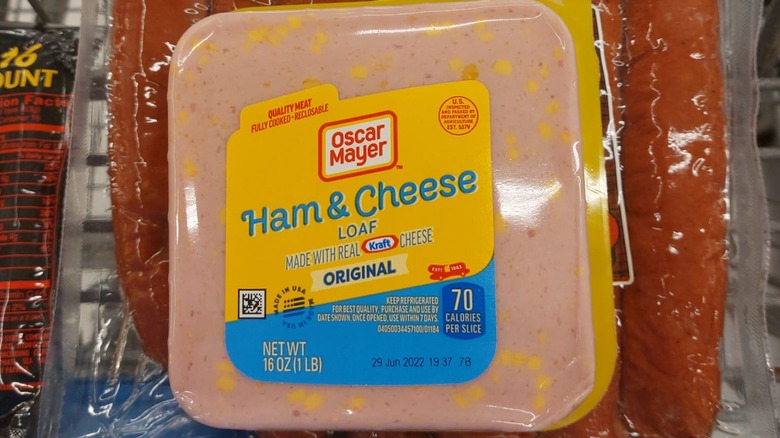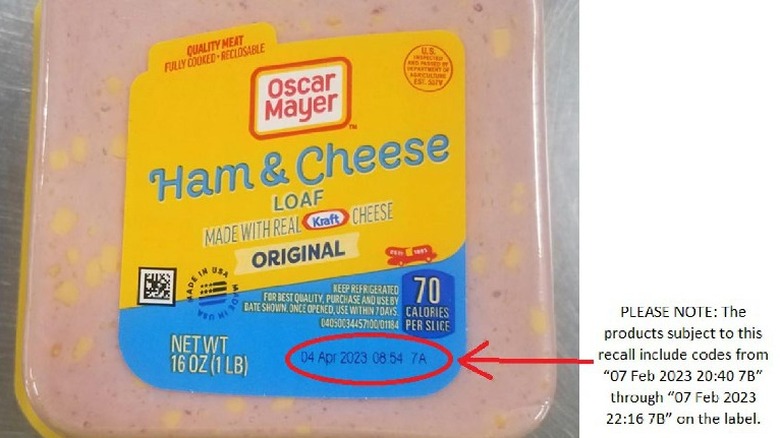Kraft Heinz Is Recalling 2,400 Oscar Mayer Ham And Cheese Loaves
According to the United States Department of Agriculture's (USDA) Food Safety and Inspection Service (FSIS), the Kraft Heinz Foods Company put out a recall on December 5, 2022 on its Oscar Mayer Ham and Cheese Loaf. FSIS classifies this recall as a Class I, which means there's "high or medium risk" and "a reasonable probability that the use of the product will cause serious, adverse health consequences or death." FSIS made 38 Class I recalls in 2021, with the majority of overall recalls made due to undeclared allergens.
Kraft Heinz Foods Company recalled around 2,400 Oscar Mayer ham and cheese loaves that were made on October 10, 2022 and vacuum sealed in 16-ounce packages with a range of codes from "07 Feb 2023 20:40 7B" to "07 Feb 2023 22:16 7B." The packages of contaminated Oscar Mayer Ham and Cheese loaves also have a USDA inspection mark with "Est. 537V" printed inside, and the products were sent to various locations in Virginia and Ohio. Here's what else you need to know about the Kraft Heinz Oscar Mayer ham and cheese loaf recall.
Oscar Mayer ham and cheese loaves were recalled for a processing defect
According to FSIS, the Kraft Heinz ham and cheese loaves are a ready-to-eat product that's completely cooked, and they were recalled because they were processed with equipment that was also used to process uncooked products. Because the equipment wasn't cleaned between uses, the company issued the recall informing the public of the possible contamination. As of December 5, 2022 when the recall was issued, FSIS hasn't been made aware of any illness or injury due to the handling or consumption of the contaminated products, and The Kraft Heinz Food Company can be contacted at 1-866-572-3806 for questions regarding the recall.
FSIS highly advises consumers to discard the contaminated product or return them for a refund. If contaminated products are accidentally consumed, common symptoms of food poisoning include nausea, upset stomach, fever, diarrhea, stomach cramps, and vomiting, and it could take anywhere from a few hours to a few days for symptoms to show themselves, according to the Centers for Disease Control and Prevention (CDC). Consumers should see a doctor if they feel dehydrated, have a fever of 102 degrees F or higher, or if symptoms persist for more than a couple of days. Ways to prevent food poisoning include keeping your hands and surrounding surfaces clean after handling certain food products, cooking foods to their proper temperatures, refrigerating leftovers as soon as possible, and storing different food products separately from each other (via CDC).

